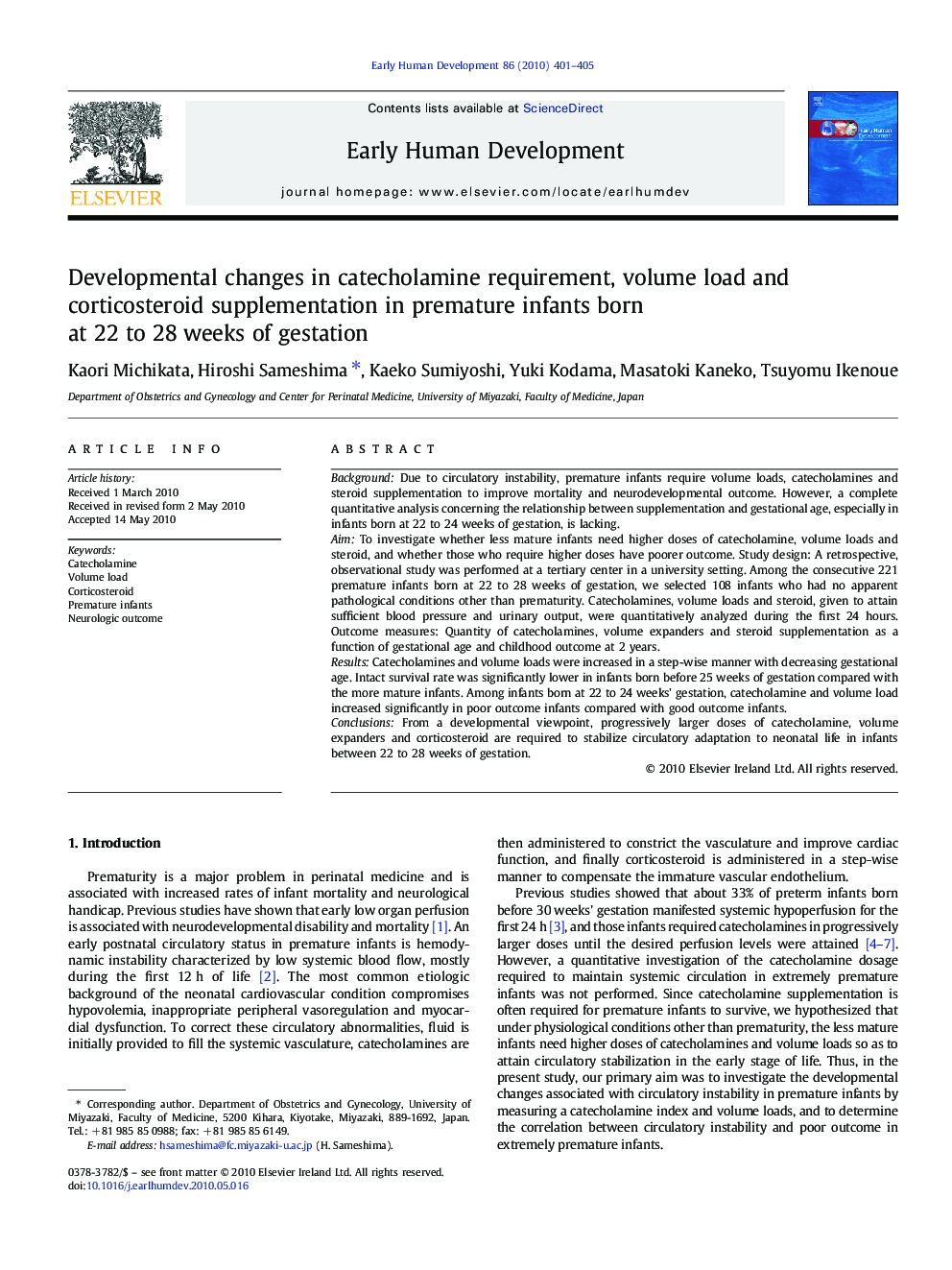| Article ID | Journal | Published Year | Pages | File Type |
|---|---|---|---|---|
| 6172361 | Early Human Development | 2010 | 5 Pages |
BackgroundDue to circulatory instability, premature infants require volume loads, catecholamines and steroid supplementation to improve mortality and neurodevelopmental outcome. However, a complete quantitative analysis concerning the relationship between supplementation and gestational age, especially in infants born at 22 to 24 weeks of gestation, is lacking.AimTo investigate whether less mature infants need higher doses of catecholamine, volume loads and steroid, and whether those who require higher doses have poorer outcome. Study design: A retrospective, observational study was performed at a tertiary center in a university setting. Among the consecutive 221 premature infants born at 22 to 28 weeks of gestation, we selected 108 infants who had no apparent pathological conditions other than prematurity. Catecholamines, volume loads and steroid, given to attain sufficient blood pressure and urinary output, were quantitatively analyzed during the first 24 hours. Outcome measures: Quantity of catecholamines, volume expanders and steroid supplementation as a function of gestational age and childhood outcome at 2 years.ResultsCatecholamines and volume loads were increased in a step-wise manner with decreasing gestational age. Intact survival rate was significantly lower in infants born before 25 weeks of gestation compared with the more mature infants. Among infants born at 22 to 24 weeks' gestation, catecholamine and volume load increased significantly in poor outcome infants compared with good outcome infants.ConclusionsFrom a developmental viewpoint, progressively larger doses of catecholamine, volume expanders and corticosteroid are required to stabilize circulatory adaptation to neonatal life in infants between 22 to 28 weeks of gestation.
